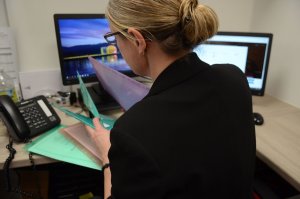On 20 December 2024, the Education Committee launched a major new inquiry to find solutions to the crisis in special educational needs and disabilities (SEND) provision.
Following recent reports on the failures of the current SEND system, the inquiry will focus on how to achieve both short-term stability and long-term sustainability for the system to improve experiences and outcomes for children and young people.
The Education Committee is made up of cross-party backbench MPs. Their role is to scrutinise the policies, administration and spending of the Department for Education (DfE) and its associated bodies.
Helen Heyes MP was elected as Chair of the Committee in September 2024. Prior to the general election, Helen focused on support for children with SEND as part of her role as the Shadow Minister for Children and Early Years.
“As a Committee we now want to move beyond simply pointing out the problems and focus on finding solutions that are realistic and practical for the Government to implement.
This crisis has many symptoms that bleed into the rest of the education system: from attrition in the teaching workforce to soaring levels of pupil absence. There are also symptoms which blight local councils’ budgets – ever increasing spending on transporting pupils to settings far from where they live, and the chaos of money being poured into tribunals that parents are expected to win. It’s widely accepted that many more councils could face effective bankruptcy if change doesn’t come soon.”
Helen Heyes MP, Education Committee Chair
The 2018 SEND Inquiry
The last inquiry into SEND was launched in 2018, following the introduction of wide-ranging reforms to the system in 2014. The Committee concluded that these reforms had been the right ones, however ‘their implementation [had] been badly hampered by poor administration and a challenging funding environment.’
To address these challenges, the government eventually introduced the SEND and Alternative Provision improvement plan as well as the SEND & AP Change Programme, which set out to test proposed changes to the system.
By the end of September 2024, the DfE had allocated £39.2 million to local authorities involved in the programme. However, the majority of this money has not been spent and pilots appear to be progressing at varying speeds. A change of government has also led to further uncertainty.
The current picture of SEND
In October 2024, the National Audit Office (NAO) released a report warning that the current SEND system is ‘financially unsustainable and in urgent need of reform.’
Following the Children and Families Act 2014, there has been a significant increase in the number of children identified as having SEND. Between 2015 and 2024, there was a 140% increase in children with an Education, Health and Care (EHC) plan alone, with the largest increases in primary need being Autism, speech, language and communication needs and SEMH. The current system and funding model is neither effective or sustainable.
Over the past decade, high-needs funding has risen by more than half (58%) to £10.7 billion for 2024-25. Despite this, the system is still not delivering better outcomes for children and young people with SEND. Moreover, the DfE estimates that 43% of local authorities will have deficits exceeding or close to their reserves by March 2026. This contributes to a cumulative deficit of between £4.3 billion and £4.9 billion. As such, researchers conclude that the current system is not achieving value for money.
The NAO also finds that families and children lack confidence in the system, often due to insufficient capacity and long waiting times. For example, only half of EHC plans were issued within the statutory 20-week target in 2023.
In light of these findings, the NAO report urges the government to explicitly consider whole system reform to improve outcomes for children with SEND and put SEND provision on a financially sustainable footing.
Call for evidence
During the inquiry, the Committee would like to hear from parents and carers, early years settings, schools, local authorities, voluntary sector organisations, professionals, sector bodies and anyone else with an interest in the system of support for children and young people with SEND.
The inquiry will focus on the following themes:
- Support for children and young people with SEND
- Current and future SEND need
- Current and future model of SEND provision
- Accountability and inspection of SEND provision
- Finance, funding and capacity of SEND provision
Written evidence can be submitted on the Committee’s website. All evidence must be submitted by 6 February 2025. There is guidance and alternative ways to respond to ensure that the views of all stakeholders are captured.
If you have experience of the SEND system, we encourage you to share your thoughts! Every voice matters. Do not miss your chance to influence the future decisions that will affect the entire education system and every child within.
Please complete the form below and we will get in contact as soon as we can to help you with your query.
















